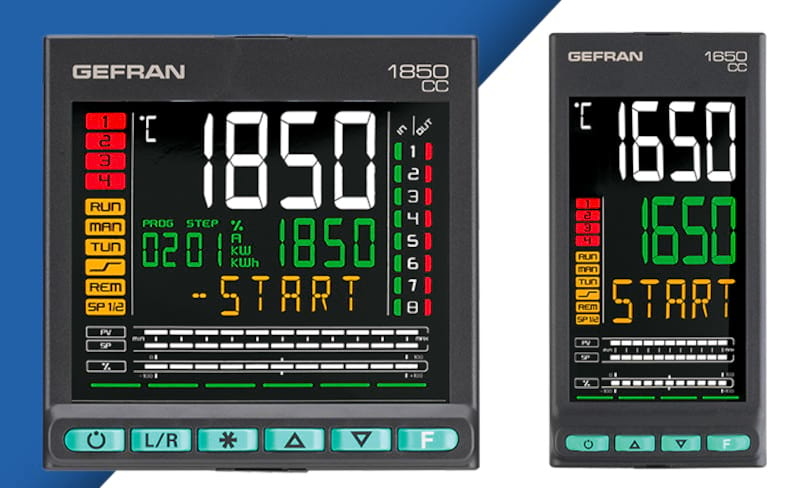Gefran expands its range of controllers dedicated to the heat treatment of metals with the introduction of the Performance Carbon Controller (CC) series. Two new models, 1650CC and 1850CC, designed to control the thermochemical steel carburisation process typically used to improve the wear and tear resistance of mechanical elements such as gear wheels, camshafts and transmission components.
Unlike other metallurgical processes, carburising allows the treated pieces to harden only superficially, enriching the outermost part with carbon and thus preserving a more ductile core. High precision and reliability in controlling the percentage of carbon and the mixture of gas present in the furnace are fundamental requirements for the treatment’s success. This occurs thanks to the management of the zirconium oxide probe, used to read the quantity of oxygen inside the furnace, a value necessary for calculating the percentage of carbon. In addition to the 2 analogue inputs needed for managing the zirconium oxide probe (Temperature and high impedance mV), Gefran’s Performance CC double loop PID controllers provide a third analogue input. The latter is available as a temperature value for the second PID control loop, for the continuous reading of the CO value from an external gas analyser, or as a backup input for the zirconium oxide probe’s temperature value.
“Gefran can now offer a complete and increasingly interesting package of controllers from an application point of view”, states Guido Zini, Gefran’s Controllers & Power Controllers Product Manager. He continues “The launch of the new 1650CC and 1850CC is in line with the strategic direction aimed at positioning Gefran as an expert in the control of particularly demanding processes in terms of accuracy” and concludes “The Performance CC series shares with the rest of the range both compliance with AMS2750 regulations for the Aerospace sector, CQI9 for the Automotive sector and connectivity functions through Web Server, Ethernet technology and direct serial connection to Modbus Slave devices”.

